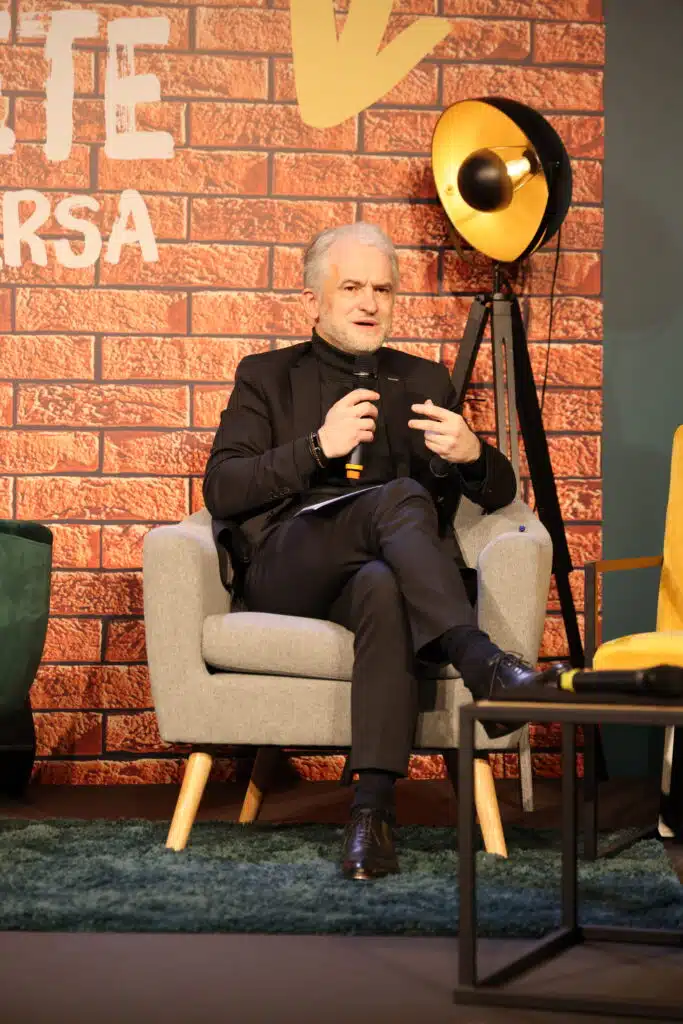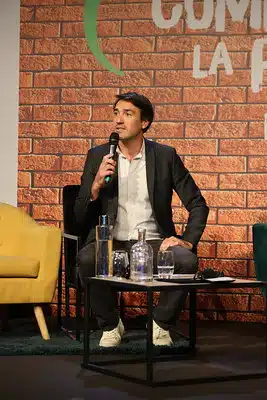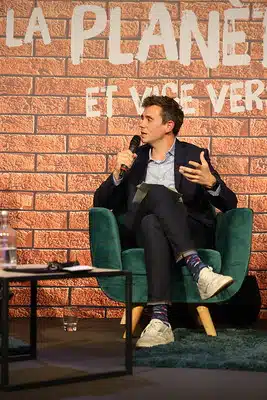Born and raised in Chile – the number one residue-generator country in Latin America – Petar Ostojic Orador was continuously exposed to the unfortunate consequences of human action on the environment. As a result, his commitment to build a better tomorrow by fighting climate change is firmly rooted in his actions and ideals.
As CEO of the energetically efficient pump company Neptuno Pumps and as the founder and director of the Centro de Inovación y Economía Circular (CIEC), Ostojic Orador contributes to the setup of a more sustainable earth. The innovator and entrepreneur adopts a circular economy model where valuing and recycling residues is key for the companies’ performance. He does so by building bridges between the philosophy of the fourth industrial revolution, advanced manufacturing, 4.0 industries, 3d impression, blockchains and sustainability. The Chilean attended the 12th edition of the World Forum for Responsible Economy to walk us through the utopia he dreams of building with his commitment to fighting climate change.
What opportunities are given to entrepreneurs and innovators by circular economy?
Three main benefits are granted by such an economic model:
Firstly, it encourages companies to develop new ideas and concepts, as well as new business models. It is an opportunity to generate disruptive innovations: solutions that create new markets. Additionally, it provides quality jobs and makes companies prove themselves as an alternative to climate change.
For those who wish to innovate and use a circular economic model, is wanting it enough? Or are there requirements for success?
Every entrepreneurship begins with an idea, a passion, but it is necessary to later land a project with a long-term business model. Otherwise, the business will barely maintain itself throughout time.
What advice would you give companies wanting to make the change and adopt this model?
The first recommendation comes from a quote I learned from Professor Deming of the Columbia Business School: “If you cannot describe your business on a process, you do not know your business”. It is therefore necessary to make a general analysis of processes and establish one for your company.
Secondly, it is essential to identify what the different stages of the company’s process are and the extra-production. Later on, they must study and identify alternatives to reuse such wastes at other stages of the process.
Also, identifying potential collaborations with other local or national projects is key to potentially incorporate wastes to their process. Lastly, one needs to include technology, and to be aware of the surrounding trends. Through that, generate content: tell the world what you are doing – social media was revolutionary for Neptuno Pump.
Where should new public policies be orientated to promote entrepreneurship, innovation and circular economy?
The most significant role in making crucial changes relies on people, on entrepreneurs and ideas. Together they have to prove to governments and politicians that different alternatives are possible and better than the ones we always take. We have seen that happen in Chile. Politicians found out about the circular model of economy and thanks to this created helpful legislation and programs.
Paula Franco.



